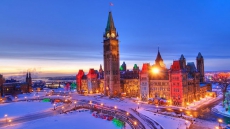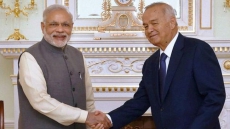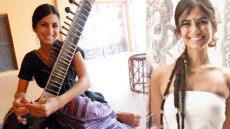VANCOUVER — Mai Eilia asks one question when she sends Facebook messages to friends in her war-ravaged homeland of Syria: "Are you still alive?"
"When you ask someone you know this question, you know how bad it is," she said from her apartment in downtown Vancouver. "'Are you still alive?' Barely. They're barely alive."
In contrast to the crowds now trying desperately to reach freedom, Eilia easily claimed asylum using a tourist visa to enter Canada two years ago.
"I'm one of the luckiest people you will ever find in the whole world, seriously," she said.
Canada's response to the Syrian refugee crisis has only recently become a major issue as other countries grapple with the same challenge.
Since civil war broke out in 2011, more than four million Syrians have escaped. Canada had resettled 2,374 people as of late August, according to Citizenship and Immigration Canada.
Eilia nearly forgot she had a golden ticket.
The conflict erupted at the same time she was suffering her own crisis — divorce and the end of an employment contract in Dubai.
All she wanted was the comfort of her family in Aleppo, her hometown and Syria's largest city. Instead, Syrian President Bashar Assad's regime threatened the life of her father, an activist with the banned, left-wing Democratic People's Party.
"Our house was abandoned, my mom and dad had left the city, I had no one there," she said. "(The Islamic State movement) was fighting, the regime was fighting, it was completely a war zone."
But somehow — she'll never know how — she had obtained a valid Canadian tourist visa, granted in 2012 when many of her friends and relatives had been denied.
Eilia was accepted into Canada through Montreal's airport in December 2013 and immediately applied for asylum. She then became the conduit for her brother, sister and two nephews to make the same claims.
She found a job at a Vancouver advertising agency and expects her permanent residency in about one year.
Eilia is grateful, but feels stigmatized by the refugee classification.
"I'm not second class. I'm very well educated. I can speak three languages. I travelled all over the world," she said firmly.
"These people, me, we don't have any choice. We don't have any option. I want people here in Canada and all over the world to just put themselves, for a minute, in our shoes."
Eilia's voice softened as she lifted up a multi-coloured tablecloth — her only physical connection to her parents, who still live along the Syrian-Turkish border.
It's a handmade, traditional piece that her mother bought in Damascus.
"It's the only thing that I have, right now, from back home."
Eilia said she's angry about the humanitarian crisis because countries with power to act remain silent about what caused it — the war.
"I'm not political, but I understand that there's a war and someone has to do something about it," she said. "They stopped so many other wars before. Why can't they stop this one?"





